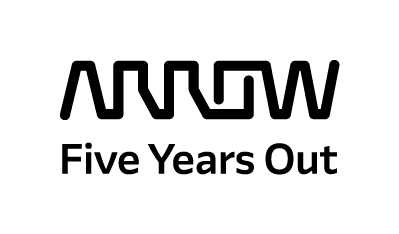Value Recovery | Recycling Revisited
By Carol Baroudi
Arrow Electronics Official Blog | Value Recovery
In case you haven’t noticed, the recycling industry is in trouble. I feel fortunate that although some folks think of us as electronics recyclers, we are emphatically not in the recycling business. Our mantra is “Reuse First” and we provide data security and environmentally preferable outcomes for the assets entrusted to us by our customers.
One fundamental flaw with recycling is that in an effort to keep the cost of goods arbitrarily low, the bulk of manufacturing is done in geographies with the lowest wages, the fewest environmental protections, and the fewest worker safeguards. Suppressing the cost of goods stimulates consumption and an attitude of “disposability.” If it costs more to repair an item than it does to buy a new one, “thrift” justifies the new purchase. But that’s only because many, many costs are not calculated in the purchase price – the cost of waste removal, for example, or the health costs attributable to environmental factors associated with both its creation and demise. If the cost of goods accurately reflected the entire life cycle – from the sourcing of raw materials through the costs associated with responsible end-of-life handling – we would, quite frankly, buy less. Perhaps we would value what we have more readily, and be more judicious in what we recycle, reflecting a better understanding of the reality that our casual attitudes really cost much more than we’ve paid to date.
For recycling to work as a business, the business must cover all its costs with either fees collected for the service, or the sale of the commodities coming out of the recycling efforts, or both. If there is no market for the commodities reclaimed, there is no business. Recycling is both an energy-intensive and labor-intensive business, so to be viable, recycling businesses have to try to meet their operating costs with what have been plummeting commodity values that seem destined to stay low.
Recycling is part of the core curriculum of sustainability. Many of us have been dutifully recycling paper, bottles, and cans for decades now, and throwing these materials into the trash causes me angst. And the idea of throwing electronics in the trash makes my blood pressure rise. But the reality is that recycling is, at best, a “half measure,” and recycling as a business is under duress.
It’s a half measure because so little of what is theoretically recyclable is recycled. It’s under duress as a business because much of what is being recycled is being contaminated, meaning its value is lost, and recycling businesses may not be able to survive. And there’s evidence that points to that fact that when people recycle, they often consume more, somehow feeling less guilty because they recycle. If you’re serious about sustainability, look for ways to keep goods in use longer and avoid single-use options whenever doing so is viable.
Even as we look for ways to implement more recycling activities, we must also look for ways to avoid the need. Can your cafeteria function with reusable dishes and flatware? Can we find a way to avoid throwing away the more than a million plastic cups a daythat are discarded during flights? We can certainly help give your electronics a new life and send them for recycling only when we’ve exhausted opportunities for reuse.
Got a recycling suggestion or story to share? Drop me a line at cbaroudi@arrow.com.



